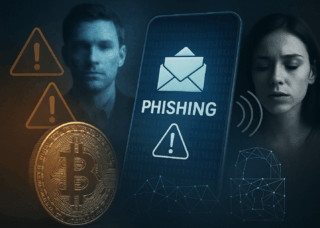Wondering “when is it too late to hire a private investigator?” Timing can be as crucial as the investigation itself. Whether it’s evidence preservation, statutes of limitations, or the sheer urgency of the situation, hiring a PI at the right moment can make or break your case. This post digs into these critical timing aspects, offering you insights into the right time to call in the professionals and the potential consequences of waiting too long.
TL;DR
- The timing of hiring a private investigator is crucial for evidence collection and successful legal outcomes as delays can lead to evidence deterioration, legal complications, and increased costs.
- Statutes of limitations play a significant role in private investigations and can affect the course of action a private investigator takes, underscoring the urgency to act within legal time frames.
- Initial consultations, understanding case urgency, and setting progress expectations are important steps in creating an effective investigation strategy, especially when time is of the essence.
Critical Timing in Private Investigations
In private investigations, time significantly influences the outcome of your case. The timing of your decision to hire a private investigator can greatly affect the case’s success. Imagine the detective in a crime novel who always seems to be at the right place at the right time, uncovering critical evidence just when it seems all is lost. That’s not just creative writing; it mirrors the real-life importance of efficient scheduling in private investigations.
Private investigators also take into account the urgency of the case while formulating a comprehensive investigation plan. They guarantee a timely and efficient investigative process by evaluating aspects such as location and timeline.
Now, we will examine some specific timing aspects in private investigations, focusing on investigation services.
The Window of Opportunity for Evidence Collection
Evidence collection is a critical phase in any investigation, and timing plays a significant role in its success. A well-structured step-by-step template can considerably streamline this process, especially in cases like missing person investigations, where electronic evidence can be crucial. It’s like following a roadmap that guides you through each turn, saving valuable time and enhancing the chances of reaching your destination successfully.
On the other hand, delays in this process can lead to the damaging deterioration of evidence quality, such as the risk of evidence being tampered with or destroyed, and witnesses’ memories fading. Hence, a private investigator, armed with specialized technology and tools and ready for immediate action, is essential for the prompt collection and preservation of evidence.
Deadlines and Statutes of Limitations
You may encounter the term “statutes of limitations.” These laws set the maximum period within which legal proceedings must be initiated after an alleged offense, and they vary depending on the type of offense and jurisdiction. In other words, they are the ticking clock that every detective in a crime novel is racing against.
For certain offenses, such as fraud or personal injury, these statutes prescribe a specific timeframe within which a private investigator must gather and present evidence to support legal claims. Changes in these statutes, like extensions granted for specific cases, can necessitate adjustments in the timing and approach of investigations. Even serious crimes, like murder, which may not have any statute of limitations in some states, influence the urgency with which private investigators approach these cases.
In financial investigations, the applicable statute of limitations can impact the collection of relevant evidence and the ability of creditors to initiate lawsuits.
When Immediate Action Is Required
In certain cases, time is not just a significant factor; it can determine the difference between success and failure. Private investigators leverage online tools, GPS technology, and case management software features to gather information quickly and navigate new areas in urgent situations, such as missing person scenarios. It’s akin to a race against the clock, where every second counts, and there’s no room for error.
In scenarios requiring immediate action, dictation software and hands-free communication devices aid investigators in optimizing surveillance time. They also possess specialized knowledge and can dedicate resources effectively in urgent situations, such as when a loved one goes missing, or when a client’s complex operations require expertise that police detectives may not offer. In these instances, the swift action of a private investigator can be the difference that helps crack the case.
The Consequences of Delayed Investigations
Having understood the significance of timing in private investigations, let’s now examine the other side of the coin: the repercussions of delayed investigations. When investigations are postponed, it can have significant legal implications and negatively impact the outcomes for a business. It’s like a pendulum that swings back with a force equal to that which initially pushed it.
Postponed investigations could even cause the reversal of disciplinary measures, like wrongful dismissal, leading to the employee’s reinstatement and compensation. It’s a ripple effect, where the delay in action causes waves of consequences that can significantly impact the course of events.
Let’s delve deeper into how these repercussions can impact your legal strategy and finances.

Impact on Legal Strategy
Imagine being in a courtroom, and your attorney mentions a critical witness who can provide concrete proof to turn the tide in your favor. However, due to a delayed investigation, that witness has become difficult to track down or unavailable, and obtaining the relevant documents has become a challenge. Such scenarios can compromise the thoroughness and credibility of your legal strategy.
Extended delays might also create a perception of disciplinary action as too little or too late, which can undermine the effectiveness of any legal responses to corporate fraud and misconduct.
In cases involving child custody, delays in hiring a private investigator when faced with allegations of neglect, substance abuse, or other harmful behaviors can significantly impact the legal strategy and the well-being of a child.
Financial Implications
The financial implications of delayed investigations can be likened to the snowball effect. A small delay can escalate into a bigger problem, resulting in higher costs. Over time, the complexity and urgency that build up can significantly increase the cost of hiring a private investigator.
Delayed investigations can have several negative consequences, including:
- Requiring more extensive research and increased labor
- Resulting in higher fees, especially if there are time constraints or difficulties caused by delayed reporting
- Potentially leading to weaker cases in litigation, which can result in higher settlements or judgments.
Failure to timely investigate can also negatively impact:
- business negotiations
- transactions
- competitive positioning
- financial resources
- insurance claims
Investigations that commence late can compromise these aspects, affecting financial compensation.
Identifying the Right Time to Hire a Private Investigator
Knowing when to hire a private investigator is like understanding the perfect time to plant a seed. Doing it too early or too late might not yield the desired outcome. Client testimonials are a key factor in determining the reliability and effectiveness of a private investigator’s services. Positive client testimonials serve as social proof that not only builds credibility for the investigator but also influences potential clients.
Private investigators, especially local private investigators, often use innovative strategies, like:
- devising believable scenarios to gain access to subjects
- conducting surveillance to gather evidence
- using advanced technology to track and monitor individuals, just like a private detective would do.
These tactics help reveal essential details even in the later stages of a case. However, it’s not just about the tactics; it’s also about recognizing the signs that indicate the need for a private investigator in both personal matters and business and legal situations.
Signs in Personal Matters
In personal matters, suspicions of a partner’s infidelity can be emotionally taxing, and a private investigator can provide the objectivity needed when emotions might cloud one’s judgment. Just like a neutral third party who can see things more clearly, private investigators offer a fresh perspective that can help you make informed decisions about your relationship.
Another sign that may indicate the need for a private investigator is noticing unusual or suspicious behavior from an individual. This could suggest deeper issues that need investigating. It’s like noticing a strange pattern in a puzzle that doesn’t quite fit, prompting you to dig deeper to understand the bigger picture.
Business and Legal Triggers
In the business and legal world, the decision to hire a private investigator can often be triggered by specific needs or scenarios. For instance, before significant business transactions like mergers or acquisitions, a private investigator’s due diligence can be invaluable in assessing assets, liabilities, and potential revenue streams to avert financial missteps.
Private investigators play a critical role in:
- Tracing paper trails and identifying fraudulent activities within companies, shielding them from substantial financial harm
- Rapidly assessing and addressing security vulnerabilities in the face of immediate threats like corporate espionage
- Accessing specialized resources like databases and surveillance technology to efficiently gather vital information while maintaining confidentiality in sensitive legal matters.
The Role of Initial Consultation in Timing
The initial consultation with a private investigator can be compared to embarking on a journey. It is an opportunity for clients to share pertinent details and express their concerns about their case. The private investigator listens carefully to understand the case, assess its feasibility, and devise potential strategies.
An investigator’s professional demeanor and effective communication skills, exemplified by an organized office setup, signals their capability to manage and promptly execute investigations. But beyond just understanding your case, the initial consultation with investigative services also helps you express your case’s urgency and set expectations for the investigation’s progress.
Understanding Your Case Urgency
The initial free consultation provides an essential platform for clients to convey the urgency of their case to the private investigator. It’s like an emergency meeting where all the key players gather to discuss the plan of action. Prior testimonials highlighting the investigator’s quick and efficient response can serve as a pivotal confidence booster for clients about the investigator’s readiness for immediate action.
An investigator’s ability to utilize free resources effectively is indicative of their adaptability and quick thinking, which are key qualities for managing cases with urgent needs. In essence, the initial consultation helps to gauge the investigator’s readiness for action, akin to a litmus test of their capabilities.
Setting Expectations for Investigation Progress
Setting realistic expectations is a critical aspect of the initial consultation. The estimated timeframe for an investigation is influenced by the complexity of the case and the availability of relevant information. It’s like setting the estimated time of arrival (ETA) on a navigation app, taking into account the current traffic conditions and the distance to be covered.
Client testimonials often highlight the importance of an investigator’s commitment to clear communication and comprehensive reporting throughout the investigation. Moreover, an investigator’s use of case management software is indicative of their ability to organize and manage data efficiently, contributing to quicker response times.

Choosing a Private Investigator Ready for Immediate Action
Selecting the right private investigator prepared for immediate action is similar to choosing the apt race car driver for a high-stakes race. You want someone with the right skills, experience, and resources who can hit the ground running. Private investigation firms with a long-standing presence in the industry are often more reliable and capable of mobilizing quickly for immediate action.
Larger private investigation firms generally have more extensive resources, which can facilitate a faster response, although they may sometimes be less familiar with local contexts compared to smaller firms. Effective management and a collaborative team environment within a private investigation company are crucial for the efficient and timely handling of cases. The presence of administrative staff and a direct stock of specialized equipment in a private investigation firm enhances their capacity for immediate case action and minimizes potential delays.
Assessing Availability and Resources
Assessing a private investigator’s availability and resources is an essential step in choosing the right professional for your case. Private investigators who efficiently utilize databases and software are likely to conduct investigations more efficiently and promptly. It’s like choosing an athlete who not only has the physical strength but also the strategic acumen to use their resources optimally.
Membership in professional organizations suggests a private investigator’s dedication to their profession, which can be a good indicator of their readiness for immediate action. The surge in demand for private investigators during the COVID-19 pandemic underscores the importance of assessing an investigator’s availability and readiness to take on new cases effectively.
Evaluating Previous Client Experiences
When choosing a private investigator, previous client experiences can provide valuable insights into their efficiency and promptness in handling cases. It’s like reading reviews before buying a product or booking a hotel room. An investigator’s reputation, reflected in their previous clients’ experiences, can reveal their promptness and efficiency.
Just as you wouldn’t buy a product with consistently poor reviews, it’s crucial to choose a good private investigator with positive feedback from previous clients. This can provide assurance about their ability to act quickly and effectively, especially when you decide to hire private investigators late in the process.
Common Misconceptions About Hiring Private Investigators Late
Just as myths and misconceptions abound in every field, there are several misconceptions about hiring private investigators late in the process. A widespread misconception is that hiring a private investigator late in the process can result in privacy invasion issues. However, licensed investigators are well-versed in privacy laws and maintain strict adherence to legal stipulations against illegal surveillance.
Another misconception is that hiring a private investigator late may result in obtaining illegally acquired evidence, which could be inadmissible in court. In reality, ethical private investigators ensure that evidence is collected in compliance with laws and regulations. It’s important to debunk these misconceptions to understand the potential consequences and benefits of hiring private investigators late in the process.
In Closing
To wrap up, the timing of hiring a private investigator plays a critical role in the success of the investigation. Whether it’s in the collection of evidence, the legal implications, or the financial consequences, timing can make a significant difference. Understanding when to hire a private investigator, both in personal matters and business and legal situations, can make the process more efficient and effective. During the initial consultation, clear communication and setting realistic expectations can pave the way for a successful investigation. However, it’s essential to debunk common misconceptions about hiring private investigators late in the process to make an informed decision.
FAQs: Timing Your Decision to Hire a Private Investigator
To find a good private investigator, reach out to professional organizations and research online reviews of local investigators before making your decision. Professional organizations and online reviews can help you connect with a licensed PI and make an informed choice.
It is unethical for a private investigator to engage in illegal activities such as hacking into bank accounts, impersonating individuals, or using deceitful methods to obtain private information. Additionally, stalking, harassment, and causing psychological distress to others are unethical practices that violate both legal and moral standards.
No, the vast majority of private investigators conduct legal surveillance only. Phone tapping requires technical expertise and carries a significant risk of prosecution. PIs may legally access phone records with a court subpoena, but they cannot listen to call contents without consent.
Hiring a private investigator can be a game-changer, providing access to vital information that would have remained concealed. Whether it’s a personal matter, business dispute, or legal issue, their services can be valuable.
Hiring a private investigator at the right time is crucial for the success of the investigation as it affects evidence collection, legal deadlines, and the ability to take immediate action in urgent situations.






